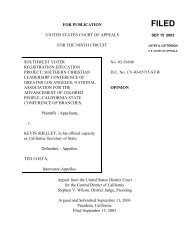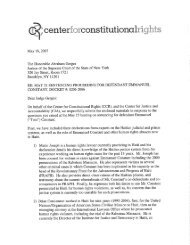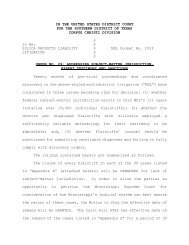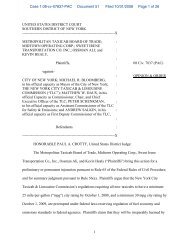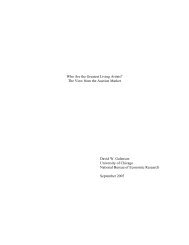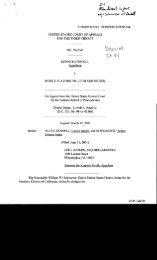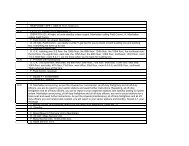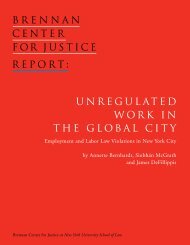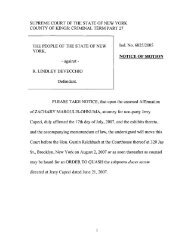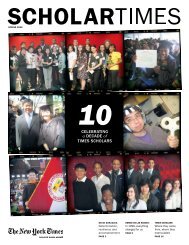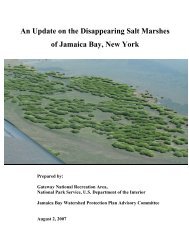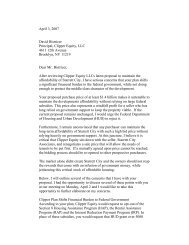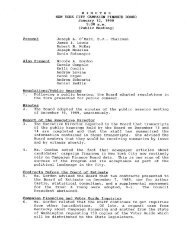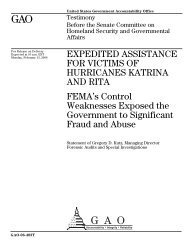271. Memorandum of Conversation1 Moscow, May 24, 1972, 7:50 ...
271. Memorandum of Conversation1 Moscow, May 24, 1972, 7:50 ...
271. Memorandum of Conversation1 Moscow, May 24, 1972, 7:50 ...
You also want an ePaper? Increase the reach of your titles
YUMPU automatically turns print PDFs into web optimized ePapers that Google loves.
<strong>May</strong> 13–<strong>May</strong> 31, <strong>1972</strong> 1063<br />
General Secretary Brezhnev: Well, we have certainly had a most<br />
serious discussion on a problem <strong>of</strong> world importance. I wish to reemphasize<br />
that what’s been said is useful, taking into account the level <strong>of</strong><br />
our discussion and the frankness <strong>of</strong> both sides. I do believe it is correct<br />
that this will not end our discussion <strong>of</strong> this topic; think things over<br />
in an endeavor to find a solution. After all there is more than one solution<br />
to any problem. One must find the most reasonable solution. We<br />
understand by your last remark that you are prepared to look at this<br />
and we understand you are prepared to do this.<br />
The President: No question.<br />
General Secretary Brezhnev: Mr. President, on the eve <strong>of</strong> coming<br />
to this country we did note that you had decided not to harden your<br />
position on bombing during your visit here. But unfortunately that has<br />
not been the case and I hope you can appreciate our attitude toward<br />
this and its significance.<br />
Dr. Kissinger: To what does the General Secretary refer?<br />
General Secretary Brezhnev: Haiphong and Hanoi.<br />
Dr. Kissinger: We told your Ambassador we would not bomb in a<br />
certain radius <strong>of</strong> Hanoi, a certain number <strong>of</strong> miles from Hanoi. And I am<br />
not aware that this has been done, and if so you should tell us about it.<br />
The President: We made a commitment.<br />
General Secretary Brezhnev: It has been in the TASS communication.<br />
Chairman Kosygin: I refer once again to the Minister <strong>of</strong> Marines’<br />
report on our ships being buzzed and bombs being dropped near them<br />
and American aircraft imitating bombing dives against our ships.<br />
The President: We will check. That’s against our orders. 11<br />
General Secretary Brezhnev: You can appreciate our feeling on this<br />
matter, because when one <strong>of</strong> our ships was damaged and some people<br />
were wounded before your visit we lodged a protest with you, but<br />
we didn’t say one word about this in the Soviet press. The entire world<br />
knew about it.<br />
11 Following the meeting Kissinger cabled Haig in Washington, and reported Kosygin’s<br />
accusation that U.S. bombing activities had been taking place close to Soviet vessels<br />
berthed in DRV ports (presumably Haiphong). He said that Nixon had assured the<br />
Soviet leaders that such activities, if true, were not authorized and that he would check<br />
into these allegations. Kissinger asked Haig to send them any relevant information and<br />
noted that it went without saying that “every effort must be made to avoid incidents<br />
while we are in <strong>Moscow</strong>.” (Telegram Hakto 28, <strong>May</strong> <strong>24</strong>; National Archives, Nixon Presidential<br />
Materials, NSC Files, Box 480, President’s Trip Files, The Situation Room—President’s<br />
Trip, USSR, Iran, Austria, Poland, <strong>May</strong>–Jun <strong>1972</strong>, HAKTO File) In telegram Hakto<br />
35, <strong>May</strong> 25, Kissinger ordered: “All bombing within a five mile radius from the center<br />
<strong>of</strong> Haiphong is prohibited until the President returns to the United States.” (Ibid., Howe<br />
Vietnam Chronological File, Box 1089, <strong>May</strong> 25, <strong>1972</strong>)



